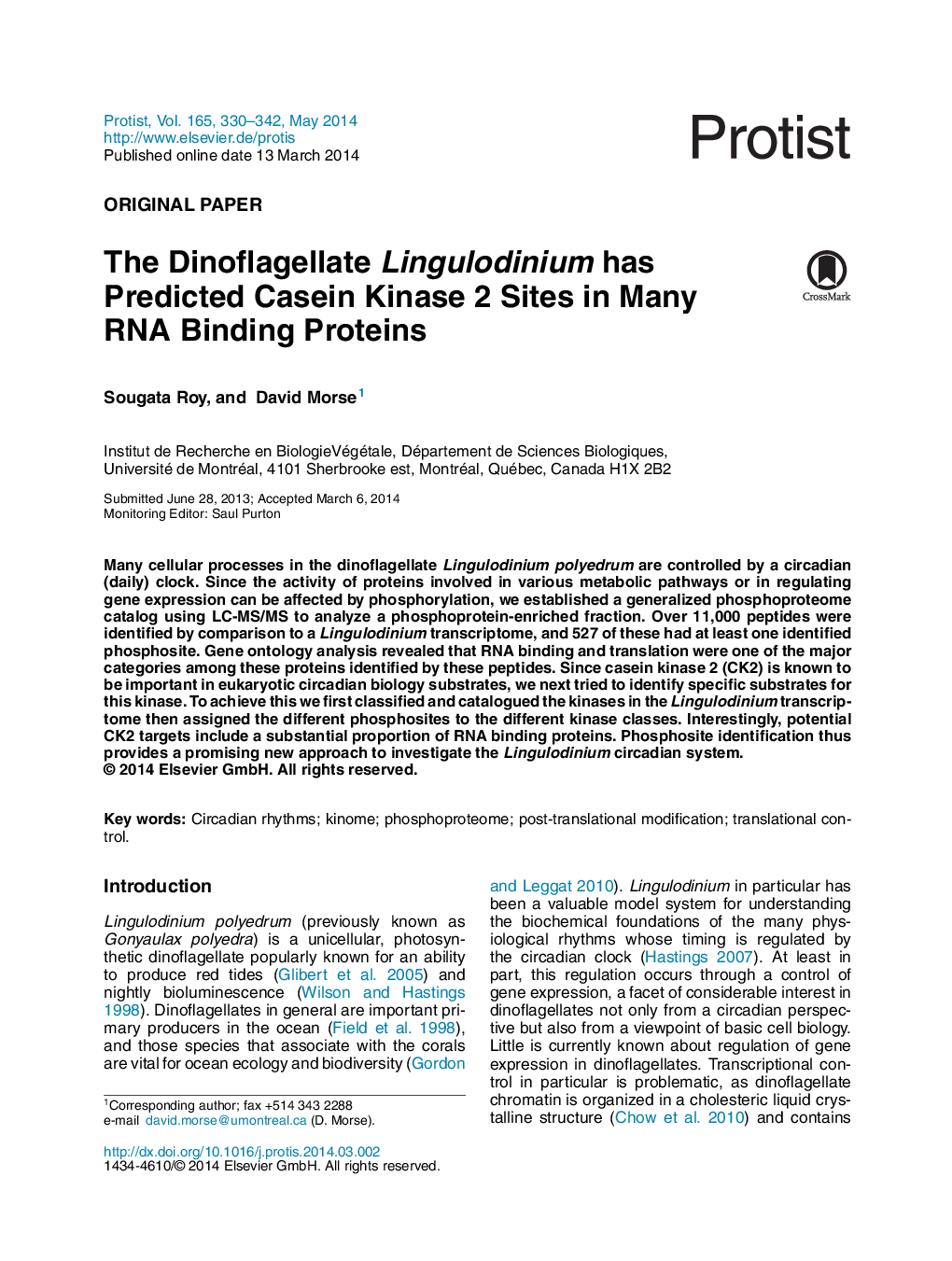| Article ID | Journal | Published Year | Pages | File Type |
|---|---|---|---|---|
| 10879076 | Protist | 2014 | 13 Pages |
Abstract
Many cellular processes in the dinoflagellate Lingulodinium polyedrum are controlled by a circadian (daily) clock. Since the activity of proteins involved in various metabolic pathways or in regulating gene expression can be affected by phosphorylation, we established a generalized phosphoproteome catalog using LC-MS/MS to analyze a phosphoprotein-enriched fraction. Over 11,000 peptides were identified by comparison to a Lingulodinium transcriptome, and 527 of these had at least one identified phosphosite. Gene ontology analysis revealed that RNA binding and translation were one of the major categories among these proteins identified by these peptides. Since casein kinase 2 (CK2) is known to be important in eukaryotic circadian biology substrates, we next tried to identify specific substrates for this kinase. To achieve this we first classified and catalogued the kinases in the Lingulodinium transcriptome then assigned the different phosphosites to the different kinase classes. Interestingly, potential CK2 targets include a substantial proportion of RNA binding proteins. Phosphosite identification thus provides a promising new approach to investigate the Lingulodinium circadian system.
Related Topics
Life Sciences
Agricultural and Biological Sciences
Agricultural and Biological Sciences (General)
Authors
Sougata Roy, David Morse,
